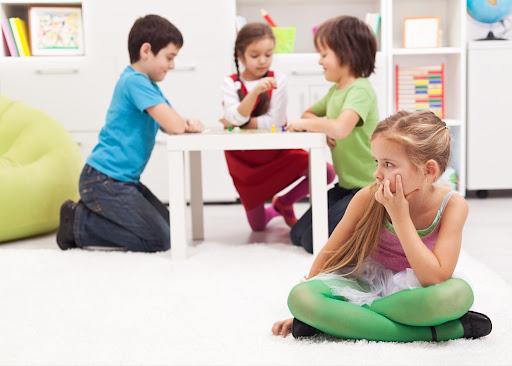How Child-Centered Play Therapy Helps Children with Social Anxiety Thrive
Social anxiety in children can be heartbreaking to witness. You may see your child clinging to you in public, avoiding eye contact, refusing to speak in class, or withdrawing from social situations altogether. These are more than signs of shyness—they could indicate social anxiety, a condition that can significantly impact a child’s well-being and development.
The good news is that child centered play therapy offers a developmentally appropriate and effective approach to help socially anxious children express themselves, build self-confidence, and develop healthier social skills.
What Is Social Anxiety in Children?
Social anxiety is characterized by an intense fear of social or performance situations where a child may feel embarrassed, judged, or rejected. It can affect a child’s school experience, friendships, and overall mental health.
Common signs of social anxiety in children include:
-
Refusal to speak in class or public settings (selective mutism)
-
Clinginess or difficulty separating from parents
-
Physical complaints (stomachaches, headaches) before social events
-
Avoidance of eye contact or group participation
-
Fear of being laughed at or making mistakes
-
Withdrawal from social or extracurricular activities
- Difficulty adjusting to changes in routine
If left unaddressed, social anxiety can limit a child’s ability to connect with others and explore their world with confidence.
What Is Child-Centered Play Therapy?
Child-Centered Play Therapy is an evidence-based, developmentally appropriate approach that uses play—the child’s natural language—as the primary medium for emotional expression and healing. Child centered play therapy allows the child to lead the session while the therapist offers a consistent, accepting, and empathetic presence.
Rather than targeting behavior directly, play therapy focuses on the child’s inner world, helping them process emotions, build self-regulation skills, and foster positive self-worth through the therapeutic relationship.
How Child-Centered Play Therapy Helps with Social Anxiety
Creates a Safe, Nonjudgmental Relationship
Children with social anxiety often fear rejection or criticism. In play therapy, the therapist offers unconditional positive regard, allowing the child to feel accepted exactly as they are. This sense of emotional safety builds trust and encourages authentic self-expression.
Allows Expression Through Play
Since socially anxious children may struggle to talk about their fears, play becomes a powerful outlet. They can act out fears of embarrassment, social rejection, or isolation using toys and creative materials. The therapist helps them process these themes symbolically, which reduces emotional intensity over time.
Builds Confidence and Self-Efficacy
In the playroom, the child is in charge. This experience of control and autonomy is crucial for children who often feel powerless in social settings. By making choices and taking the lead in a safe space, they begin to develop confidence that carries into real-life situations.
Models Healthy Interpersonal Relationships
The therapist’s consistent, attuned presence serves as a model for healthy, supportive relationships. Over time, the child learns that others can be safe and trustworthy, which helps them take more social risks and feel less anxious in peer interactions.
Promotes Emotional Regulation and Coping
Through therapeutic play, children experience and practice managing a wide range of emotions. With the therapist’s co-regulation, they develop the skills to calm their bodies and minds during stressful moments—skills that are essential for navigating social anxiety.
Why Choose Play Therapy for Socially Anxious Children?
Research supports the effectiveness of play therapy in reducing internalizing symptoms such as anxiety and social withdrawal. Play therapy is especially well-suited for children ages 3–12, as it meets them at their developmental level and promotes lasting emotional growth through relationship and play.
If your child is struggling with social anxiety, play therapy may offer the support they need to grow socially, emotionally, and relationally. By engaging in play within a safe, responsive relationship, children learn to express themselves, trust others, and thrive in social environments.
If you’d like to find out if play therapy is a good fit for your child struggling with social anxiety, please reach out to us to schedule a free parent consultation. You can call or text us at 832-521-8809.


